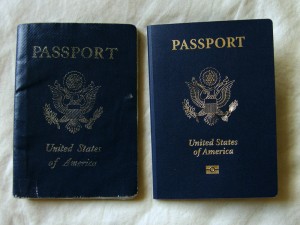At the Georgetown Dean’s Lunch Seminar I spoke at on Wednesday, one of the participants, a freshman, asked if I thought a “gap year” between graduation and, in his example, law school would be beneficial. I responded that, while everyone is different, a year abroad after graduation before entering grad school was tremendously beneficial for me—not only because it allowed me to recharge my scholarly batteries, but also because it broadened me, allowed me an experience I may not have been able to have at any other time and that has helped me tremendously since, both personally and professionally. So yes, I said, I think a “gap year” can be terrific for many, especially if it is spent abroad gaining international exposure and language skills.
A young woman, a senior, followed up by saying that in her research into possible international opportunities following graduation, she was having trouble winnowing out those that might be right for her. For example, she said, should I do the Peace Corps, do a Fulbright, teach English?How do I know what’s right for me? After we discussed the difficulties of knowing what is “right” for her or anyone else, I brought the conversation back around to the fact that she had just lumped the Peace Corps and “doing a Fulbright” into the same category. I thought it was very important for her and the other students to realize first, “doing a Fulbright” does not mean just one thing—there are many different ways to be involved with Fulbright.
But second, I said, it seems to me that the Peace Corps is not just another abroad experience. Though I wasn’t a PC volunteer, I know many who were, and from what they’ve told me, the Peace Corps is a very specific, and often very difficult, experience, one that is not right for everyone. I relayed to them the story of someone I know who, despite being one of the more idealistically gung-ho people I’ve ever met, just resigned his Peace Corps position a year and a half early. His reasons for resigning were: he wasn’t doing the work he wanted to do; he didn’t believe he was effecting any positive change; he was not enjoying the culture he was living in; and he no longer wanted to, in his words, “help reinforce a system that only hurts the people I want to help.”
While I didn’t quite know how to interpret this reasoning, again not having been a PCer myself, a good friend who completed the Peace Corps in a similar region wasn’t terribly surprised: “There are inevitably those who thrive and those who quit. The Peace Corps isn’t for everyone.”
If you’re interested in the Peace Corps, try to talk to as many people as possible who have done it before. Get a clear picture of what it really is. Because the Peace Corps is not just “going abroad,” and it’s not for everyone.




